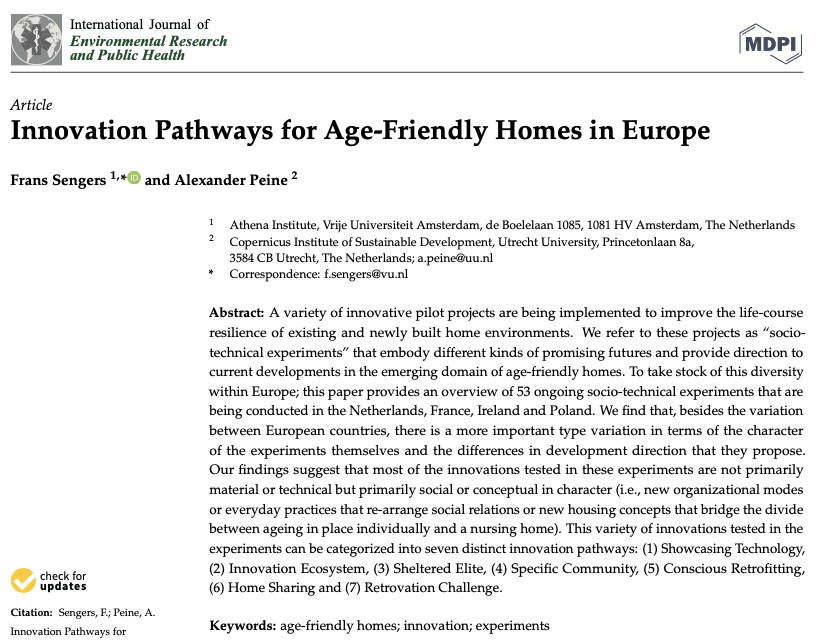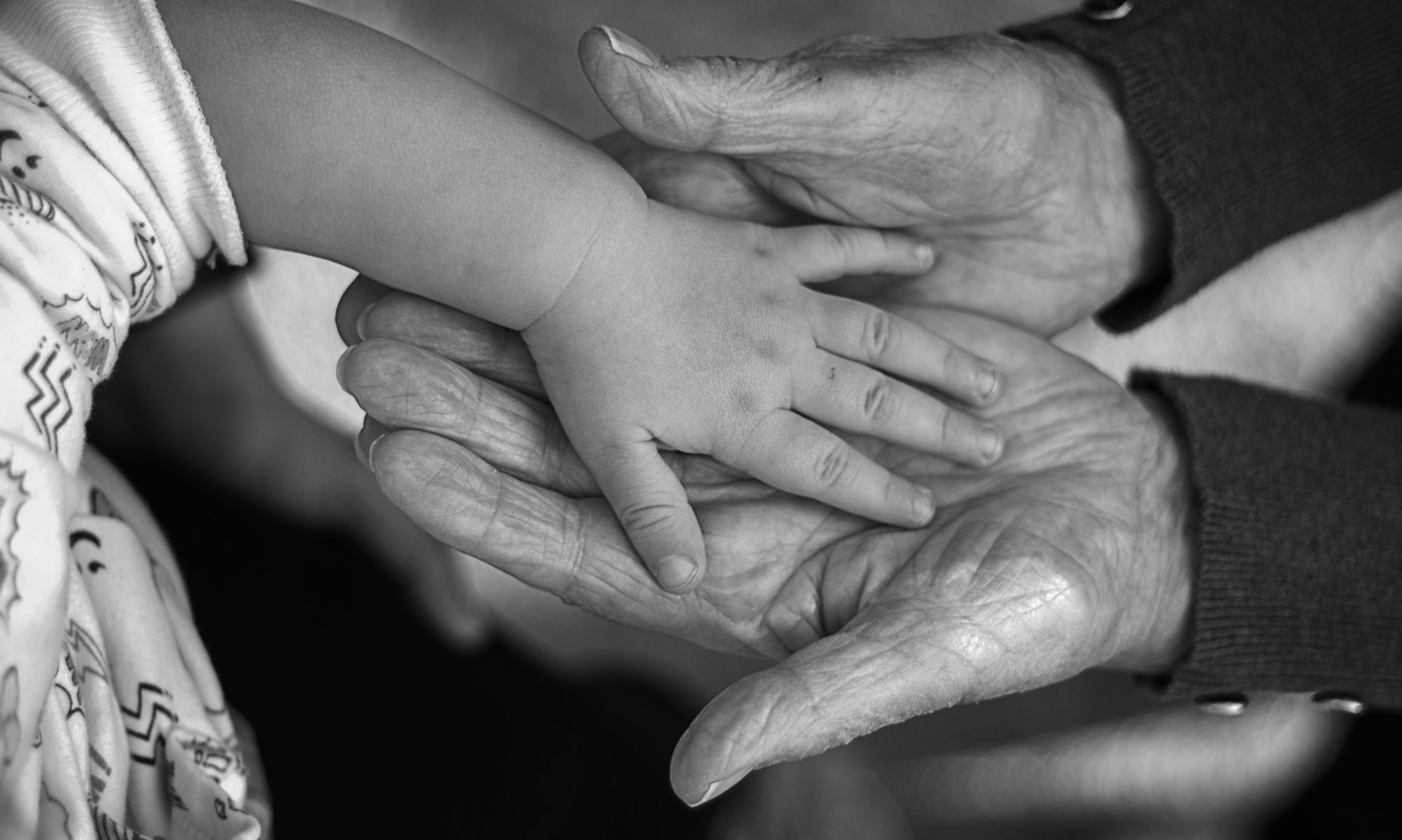A new publication co-authored by our partner Utrecht University in the International Journal of Environmental Research and Public Health is highlighting some of the outcomes of the research conducted in Homes4Life.

Abstract: A variety of innovative pilot projects are being implemented to improve the life-course resilience of existing and newly built home environments. We refer to these projects as “socio-technical experiments” that embody different kinds of promising futures and provide direction to current developments in the emerging domain of age-friendly homes. To take stock of this diversity within Europe; this paper provides an overview of 53 ongoing socio-technical experiments that are being conducted in the Netherlands, France, Ireland and Poland. We find that, besides the variation between European countries, there is a more important type variation in terms of the character of the experiments themselves and the differences in development direction that they propose. Our findings suggest that most of the innovations tested in these experiments are not primarily material or technical but primarily social or conceptual in character (i.e., new organizational modes or everyday practices that re-arrange social relations or new housing concepts that bridge the divide between ageing in place individually and a nursing home). This variety of innovations tested in the experiments can be categorized into seven distinct innovation pathways: (1) Showcasing Technology, (2) Innovation Ecosystem, (3) Sheltered Elite, (4) Specific Community, (5) Conscious Retrofitting, (6) Home Sharing and (7) Retrovation Challenge.

Read the full article at https://doi.org/10.3390/ijerph18031139

